Sullivan Higdon & Sink hates sheep. Why? Because they are followers – not leaders. Well, you may love them or hate them but during NAMA you can abuse them as part of the interactive We Hate Sheep game. The game was created by t2, an interactive company based right here in Kansas City, the host town for this year’s NAMA.
I was joking with a fellow colleague, Steve Knudsen, who works for the International Agri-Center (they host the World Expo Show each February in Tulare, CA) and he asked the designers, “So is this the Web1.0 version? When will Web 2.0 be launched with the foxes trying to eat the sheep?” I personally think that’s a super idea and maybe next year, SH&S will be back with even more ways to eliminate sheep. And if you haven’t already, be sure to stop by.
2010 National Agri-Marketing Conference Photo Album
AgWired coverage of the 2010 National Agri-Marketing Conference
is sponsored by:  . They know.
. They know.

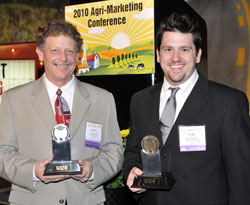 NAMA toasted the Best of the Best last night at the annual Best of NAMA Awards Ceremony. You can find a complete list of all the winners in AgriMarketing Magazine.
NAMA toasted the Best of the Best last night at the annual Best of NAMA Awards Ceremony. You can find a complete list of all the winners in AgriMarketing Magazine.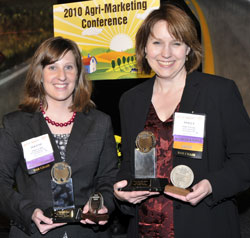 Our other Best of Show winner is for Public Relations.
Our other Best of Show winner is for Public Relations.

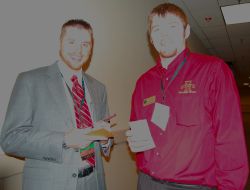


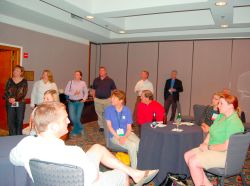
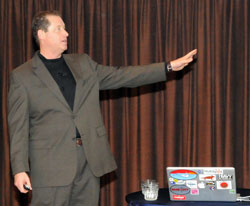 Are you afraid of social media? Is the leadership in your company afraid of it? Then you need to visit with David Meerman Scott. He’s a recovering VP of Marketing and author of the book
Are you afraid of social media? Is the leadership in your company afraid of it? Then you need to visit with David Meerman Scott. He’s a recovering VP of Marketing and author of the book  The NAMA convention is all about networking, as in meeting with friends. Oh, and there are some awards, workshops and a trade show. Gotta have all that too. But seeing friends is definitely a big part of this annual gathering.
The NAMA convention is all about networking, as in meeting with friends. Oh, and there are some awards, workshops and a trade show. Gotta have all that too. But seeing friends is definitely a big part of this annual gathering.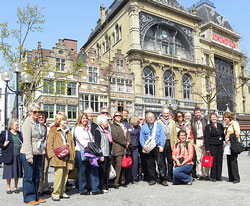
 The Agrisure Viptera trait will be combined with the Agrisure 3000GT trait stack to form the new Agrisure Viptera 3111 trait stack. The introduction of the Agrisure Viptera 3111 trait stack continues the tradition of the Agrisure Corn Traits system — providing high-performance traits to growers looking for an alternative that delivers maximum productivity.
The Agrisure Viptera trait will be combined with the Agrisure 3000GT trait stack to form the new Agrisure Viptera 3111 trait stack. The introduction of the Agrisure Viptera 3111 trait stack continues the tradition of the Agrisure Corn Traits system — providing high-performance traits to growers looking for an alternative that delivers maximum productivity.